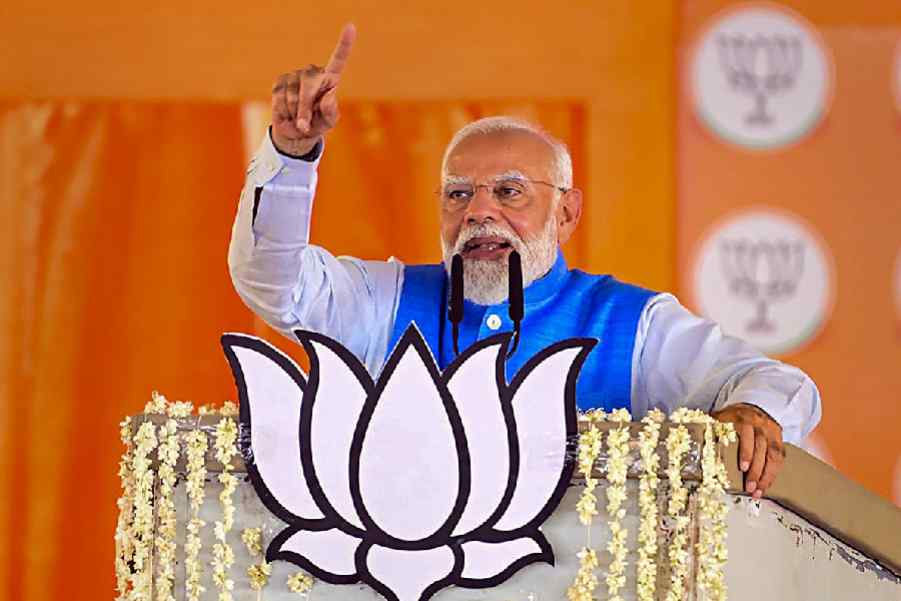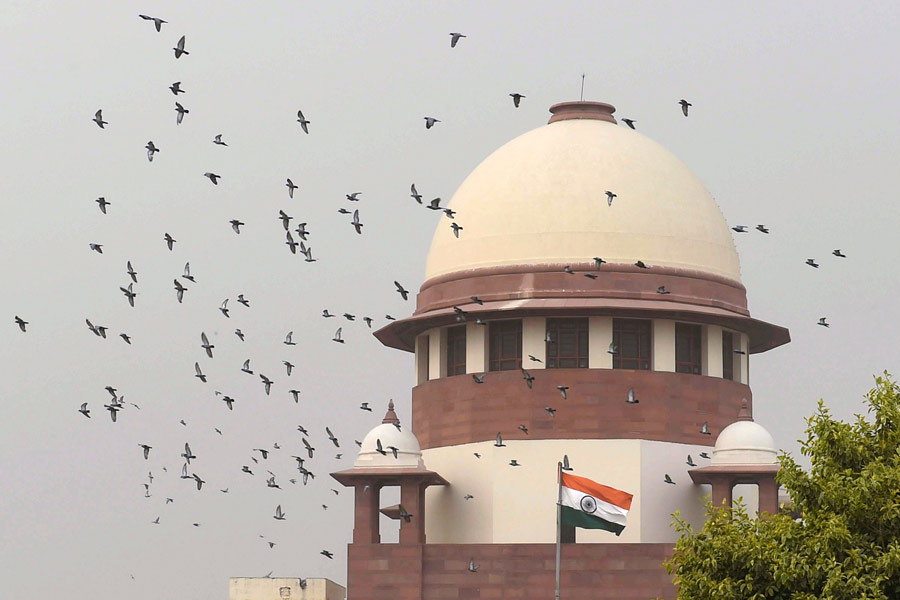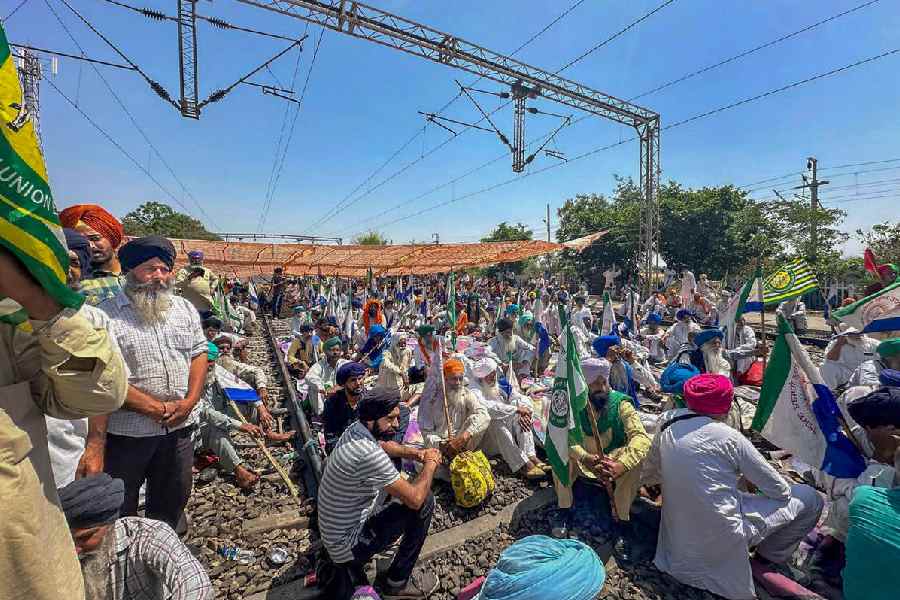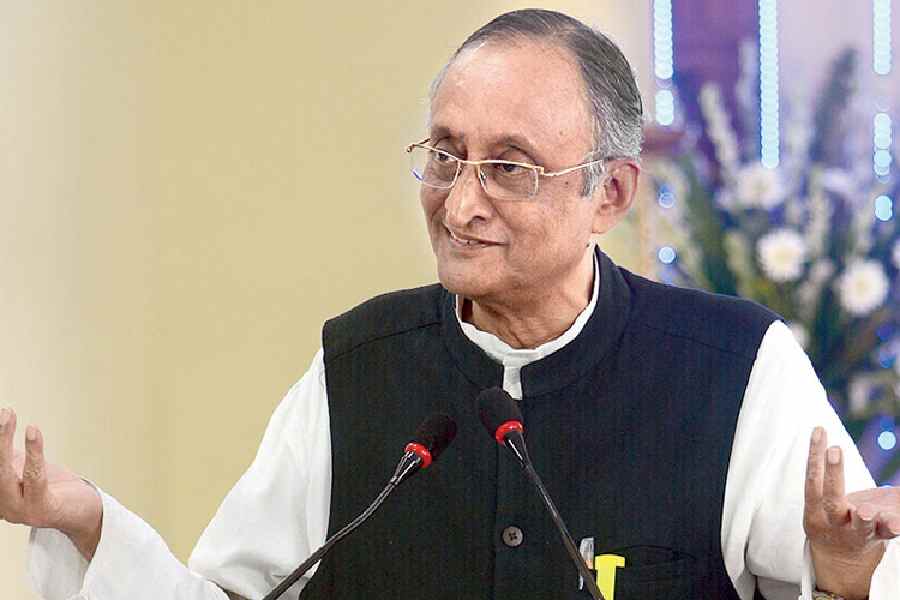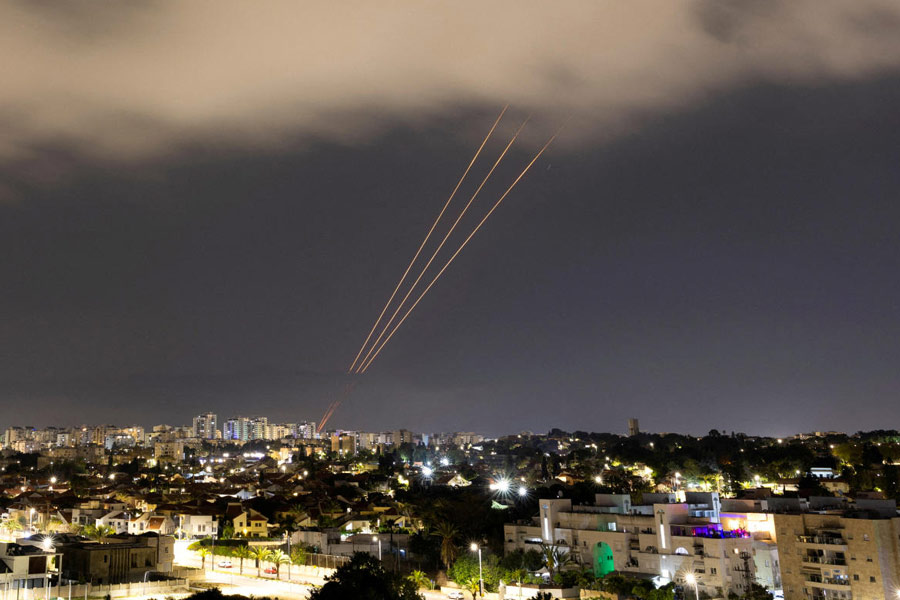A group of youths was busy inside a small stall in Parliament Street here on Sunday, counselling visiting Dalit, tribal and Other Backward Classes students about future careers and opportunities for higher studies.
In addition, they were collecting used books from donors contacted through social media. These included school textbooks, competitive-exam guides and books on Babasaheb Ambedkar, and would be distributed among impoverished students.
There were many other stalls, put up by nearly two dozen organisations to spread awareness about community issues. Like every year, people from the Scheduled Castes, Scheduled Tribes and the OBCs had thronged the spot on Ambedkar’s birthday.
Visits to half-a-dozen stalls provided an indication of the resentment that Dalits, tribal communities and the OBCs felt towards the Narendra Modi government over what they saw as threats to reservations and constitutional values as well as caste discrimination and joblessness.
Surendra Singh, one of the organisers of the career-counselling stall, said it had been put up by Youth For Social Justice. “Dalit, tribal and OBC students are very hardworking . They need a little guidance,” Singh, a PhD scholar with Delhi University, said.
One visitor asked a question unrelated to education: “Whom should we support this election?”
Singh was clear: “We want neither Rs 15 lakh nor Rs 72,000. We want education, a 200-point roster (for proportionate representation of the Dalit, tribal and OBC communities in university teaching posts), equal distribution of land and resources, and all the constitutional rights. We need a government that stands for social justice and constitutional values.”
Before the last election, Modi had promised to deposit Rs 15 lakh in every Indian’s bank account after repatriating the black money Indians had stashed abroad. The Congress has offered an annual dole of Rs 72,000 for the bottom 20 per cent poor families under a minimum income guarantee scheme.
Singh’s views were echoed in many other stalls, put up by independent civil society groups. The Dalit, tribal and OBC communities “face a great danger”, said Rajesh Kumar Dulgach, secretary, Bharatiya Samaj Nirman Sangh.
“The government has passed a quota for the economically weaker sections (among the upper castes). It will wreck the existing reservation for the socially deprived sections,” he said.
Dulgach said the Dalit and tribal MPs elected on the tickets of the mainstream parties had failed to take up the cause of social justice.
Several Dalit youths said the government was sabotaging the reservation system by privatising public-sector undertakings (PSUs).
Ramesh Sood, general secretary of the All India General Insurance SC/ST Employees Parishad, said that after disinvesting shares in the New India Insurance Company, the BJP government now planned to merge the other three government-owned general insurance companies: National Insurance, Oriental Insurance and United Insurance.
Once a company is privatised, the reservation policy does not apply to it. Mergers reduce the number of jobs available, thereby reducing the number of reserved posts too.
“Disinvestment of PSUs will end reservation. The merger of PSUs will reduce reservation. On the whole the government wants to kill reservation,” Sood said.
Rohtas Bhankhar, president of the Central Secretariat SC/ST Employees Welfare Association, said the government was hiring staff on contract, bypassing reservations. He said the government had recruited nine people from the private sector as joint secretaries in the various ministries on contract. “Contractual appointments are violations of the reservation policy. This must stop,” Bhankhar said.
He said the Union human resource development ministry was appointing young professionals on contract through the Education Consultant India Ltd, while the information and broadcasting ministry was appointing consultants on contract through the Broadcasting Consultants India Ltd.
Another group put up a stall under the banner “Sagar Education Group” to help students who face caste discrimination at educational institutions.
“We are providing all kinds of help, such as legal aid and counselling,” said Ashish Sagar, a volunteer.
His friend Mohit Gautam, who is pursuing a Bachelor in Physical Education degree from CCS University, Meerut, highlighted the job crisis. He felt the economic quota for the upper castes was a threat to the principle of social justice and constitutional values.


